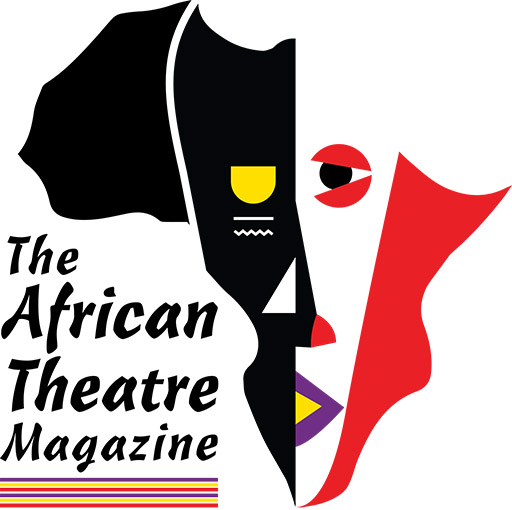Having been literally hounded out of the Black Privilege performance along with other members of the audience with apparently mutual sentiments, I asked myself what on earth did we just watch? as I tried to make sense of the show. I could hear similar remarks amidst the murmurings of others walking out of the freezing Mullins Hall – famed among Rhodes student’s for being one of the coldest exam venues — into the likewise immobilizing cold of a Grahamstown winter evening.
However, if I could feel the cold under layers of warm clothing, what more the performer herself, who performed nude? Namela Nyamza had been performing naked, save for a few metal tassels covering her pubic area, chains of medals around her neck, waist and ankles and bracelets running from her wrists to her elbows, all rounded off with a ringed, golden coronet atop of her head. This was in stark contrast her co-performer, the one who had just hounded us out of the venue.
See also: Queen Moremi the Musical Immortalises Traditional Legend
Setting the scene for her performance was a dimly lit auditorium with the audience cordoned off by a stanchion, complete with silver poles and red velvet ropes like ones often used at glamorous red carpet premiers to separate the stars from the crowds and the paparazzi.

The star of this particular show was rolled in atop a bronze staircase, and pushing it from below was a stern looking, bespectacled male figure clad in a graduation gown complete with a PhD bonnet. Gazing down upon the crowd in total silence, her skin covered in bronze body paint she had the majestic aura of a goddess, her chin held high watching over lesser mortals below with a disapproving expression on her face. For a moment as she was slowly pushed by, I felt her hold my gaze. Perhaps she had remembered me from our brief encounter in Cape Town earlier this year, but then again, it may have just been my fertile imagination since I was seated in relative darkness with the rest of the audience.
The man steering the stairs did so in a spiral motion until he halted centre stage where the ground was covered in chequered vinyl flooring. He then removed a bronze spear from beneath the stairs and placed it in front of the stage. What was the spear for? Will she descends the stairs pick it up and dazzle us all with a war dance? She is an award-winning choreographer after all. She did not perform a dance, however,, but rather remained at the top of the stairs, changing positions and the directions of her glances in silence along an expectant crowd waiting in anticipation as to which direction the performance will take next.
See also: Ogun Skugga dramatises Soyinka’s Prison Memoirs
At this point, the staircase pusher having been relieved of his earlier duties took up various positions standing in front of the crowd looking at them sternly as if warning them without words not to look too closely. Surely, one could feel the voyeur being summoned out of oneself not knowing on which aspect of the spectacle to focus.

Should the focus be the eyes, bare breasts, the elaborate loin-piece or indeed the whole aspect of the performer’s nakedness? In the meantime, trying to avoid the authority of her gaze as it sternly hovers above everyone else, she is figuratively in a position of power countered only by the lingering vulnerability of her nakedness.
The staircase pusher, in due course, plugged a cable from the staircase into a power socket and the base on which the goddess was sitting began to vibrate violently, the trinkets on her body rattling and breaking the silence along with the buzzing coming from the vibration and the occasional moan of the artist. What at first seemed to be exotic now appeared erotic, a crescendo being reached after the light went out only to be put back on revealing that she had now changed her position and now sat astride the top with her legs spread wide facing away from the audience. Meanwhile, the flesh on her arms, thighs, and buttocks was jiggling violently to the vibration emanating the base on which she was sitting.

She eventually climbs down, but not using the flight of steps. She descended from the right-hand side with no steps, and pausing midway her descent, took off her many bracelets, tossing them like seeds across the velvet ropes towards the audience. The remainder she carefully threw one by one on the floor directly beneath her, as if aiming for the black and white chequered boxes respectively.
Finally, on the floor, she lay flat on her back, arms to her side and face to the ceiling, at which point the voice of what appeared to be a satnav began to give her instructions and she would slither in any direction she was told. As opposed to her vantage point at the beginning of the performance, seeing her down on the floor, with her naked flesh to the cold floor echoed certain helplessness and yet her endurance of the cold and ability to slither across the floor resonated strength.
See also: Does Overexposure of the Black Female Body Draw it Closer to a Sell-by Date?
All these collective actions by then suggested that notions of power relations, the gaze and duplicity had inspired the performance. All that the artist had put herself through so far articulated notions of trauma.
In one reading, it evoked the trauma of colonial times when the female African body was objectified as in the case of Sarah Baartman under the guises of both study and amusement with the ulterior motive to ascertain that certain races are superior to others. In another reading, it is a commentary on today’s art world which is generally two-faced in passing judgment on any given issue.
By Andrew Mulenga
This article was first published here by Rhodes University’s Arts of Africa and Global Souths and has been reposted with the author’s permission.








Discussion about this post